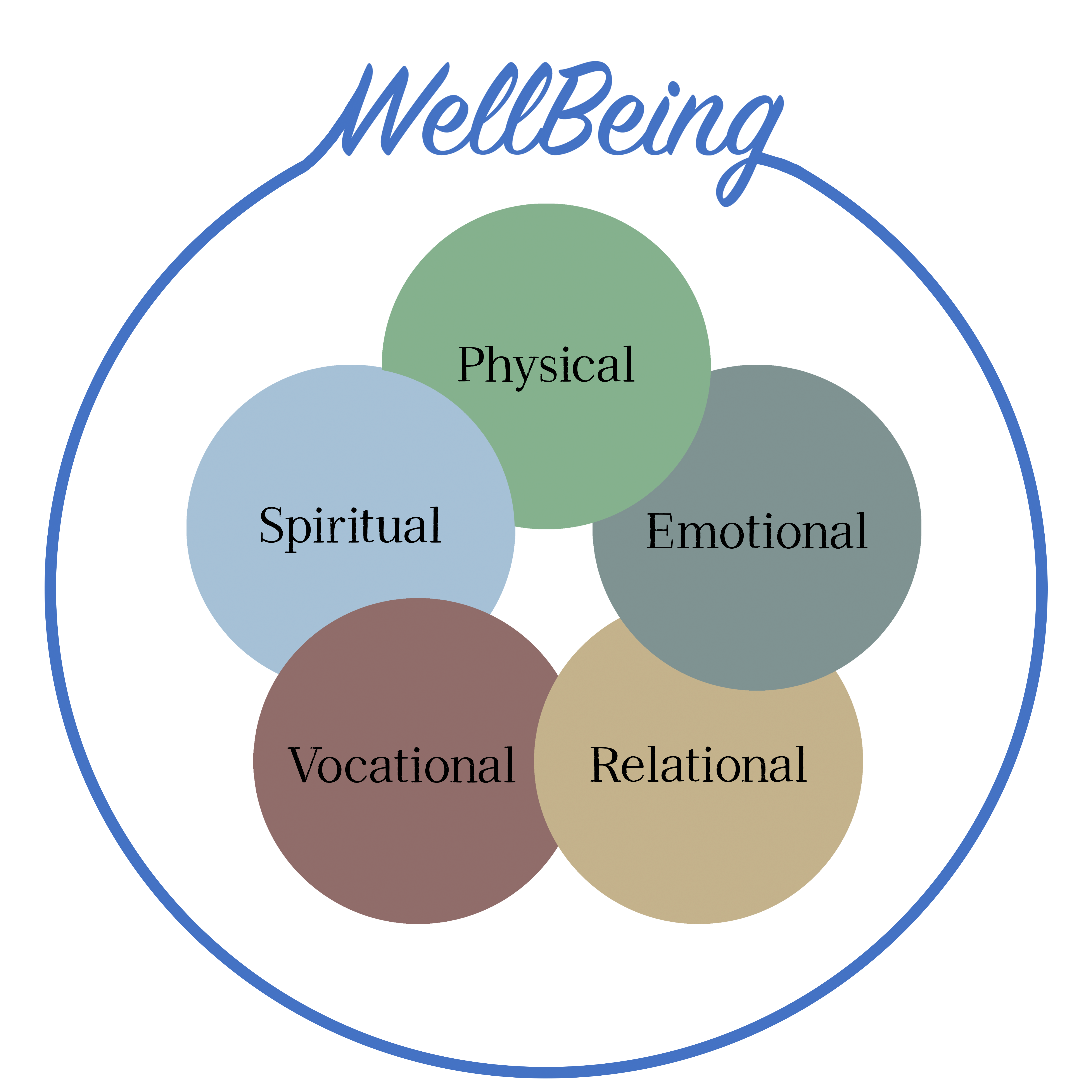
story and her road to healing.

through Bible-based resources as we
strive together to be well in Christ.
While there is much about our physical WellBeing that we are not able to control, we will focus on three powerful areas that do greatly impact our physical WellBeing - activity, nutrition, and sleep. Indeed, we eat, sleep, and move every day. Our WellBeing practices focus on our awareness and choice in these daily activities.
The first question that God asks in Scripture is, “Where are you?” Adam responds linking emotion to action, “I was afraid and I hid myself.” In our humanity, we spend much time afraid and hiding. Our emotions serve to remind us where we are. As we learn to be well, we can practice being where we are and knowing that this is exactly where God is waiting to meet us.
We are created in the image and likeness of the God who exists in the eternal community of Father, Son, and Holy Spirit. As image bearers, we are designed to be in community. In our brokenness, we too often neglect or damage community. As we learn to be well together, we will look at the practices that build community and those that repair damaged community.
Paul writes to the church in Ephesus, “we are his workmanship, created in Christ Jesus for good works, which God prepared beforehand, that we should walk in them.” (Eph 2:10). As we learn to be well, we will explore the practices that make us aware of the ways in which this calling or vocation is lived out in our occupation and profession.
Faith is the beginning and end of our WellBeing. Our practices of spiritual WellBeing teach us to be aware of the presence of God, to know of ourselves in God, and to place our trust in God.



